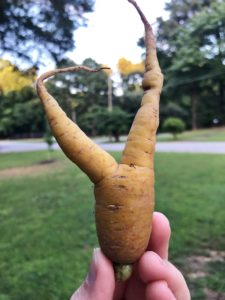We recently wrote a blog titled ‘What is the Ugly Produce Movement?‘ As we researched, Dee Dee Digby of InterNatural Marketing, was a very helpful resource. We often talk about how we source 80% of our baskets from farms that average 70 miles from Atlanta. Dee Dee helps us source the other 20% that we either don’t grow in Georgia, or don’t grow here organically. Our Q&A with her sheds further light on the ugly produce movement to help make more informed food buying decisions.
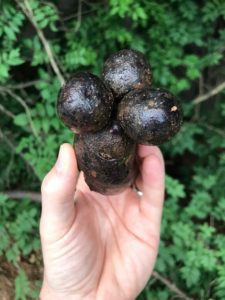
What is your food story? Tell us what you do and how you got there!
I was emerging from the hospitality industry in the early 90’s. Large corporations were cutting back on conferences and although a shock at the time, I had to move on. I first arrived on the Atlanta State Farmers Market scene in 1992 and I knew quickly I wanted to buy and sell produce. I was the first female broadline produce buyer on the Atlanta Market.
In the early 2000’s I was one of three managers who started Destiny Produce, which over the years, became Destiny Organics. By 2009 I became extremely passionate about the local food movement, was on the Board of Georgia Organics and also began selling to small independent organic retailers in 6 SE states as well as Foodservice companies and home delivery companies. My passion for locally grown produce, dairy, meat, and groceries became a huge part of Destiny Organics.
I eventually left distribution and partnered with a well-established company (and friend), InterNatural Marketing. I continue to work with farms on various levels from gaining their certifications and crop planning, to helping get their products to market.
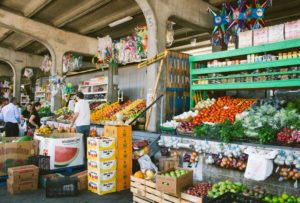
What is “Ugly produce”?
I prefer the term “less than perfect” or #2 grade produce but yes, many use the term “ugly” produce. This produce is primarily produce deemed not acceptable by retail standards (which may or may not fall under USDA guidelines for “good arrival” produce. This can be due to so many factors, such as weather – which can cause scuffing, scarring and other cosmetic issues, inadequate labor to harvest at specific size guidelines, not acceptable or compliant labeling for retailers, etc.
For example – the required standard for large retailers on squash and zucchini is “fancy” so a #2 or medium (larger) squash might be deemed unacceptable by some retailers – this does not mean it is “ugly” or really a #2. And this squash feeds people just as the standard required by retailers.
Something people may not understand either is that this can also encompass overages in yields at the farm level and #2 produce is being moved as such although it is #1 produce.
What percentage of ugly produce is bought directly from farms?
My opinion on this has changed greatly over the past few years. When it started, I was connecting them (ugly produce delivery companies) to farmers who were in trouble but you don’t really see that anymore. It is difficult for the buyers of “less than perfect or ugly” produce to move small amounts from the small growers to help them and seem to have now moved to dealing with large farms, but also it seems they are using brokers and aggregators for these large farms or retailers moving rejected produce from their docks. That is not to say that these companies do NOT deal directly with farms, but it seems as years go by it is a more simple process for them to deal with someone who can also furnish logistics in getting the produce (quickly) to the farm or the dock to their own facilities. And these large farms are dealing directly with these buyers to see that the turnaround is quick.
What types of farms are supplying the ugly produce market?
Organic and conventional but I would say mainly large farms and brokers/aggregators. These companies utilizing “ugly” produce are moving quickly, of course since dealing with perishables, and without being able to “pull the pin” quickly, small farms don’t work for their business models. Small farms cannot foresee overages in supplies and the issues bringing about a #2 grade produce and move on it as quickly as large farms.
What types of companies are buying ugly produce?
Over the years, I have dealt with retailers who would market #2 produce and grocery stores that had close expiration dates. These businesses were extremely successful and catered to a wide range of consumers. I still admire the difference that they made to not only farms and grocery producers but their customers. And then of course, processors and juicers continue to move steadily large volumes of #2 produce – however, the volume has dwindled with the emergence of IQF products (Individually Quick Frozen).
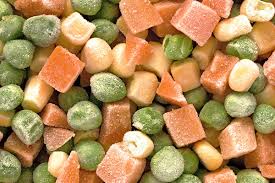
When did you first see the ugly produce home delivery model emerge?
I began to see the home delivery model emerge early 2016.
Is ugly produce home delivery alleviating our national food waste problem?
No and I don’t see that it is helping in situations where small farms must harrow fields because they cannot find a home for the produce. I believe, for the most part, they work with large growers with excess or rejections due to the ease of the transactions.
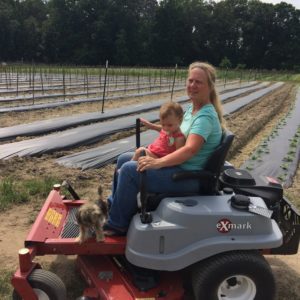
Annually, 80% of what Fresh Harvest buys is from local organic farms and those farms are an average of 67 miles from Atlanta. With those statistics in mind, what would you say to FH customers?
I have worked with Fresh Harvest for years and have seen them grow where other companies with their same business model have failed. I think there are several reasons for this. They have a very passionate and continuing relationship with local growers. They have held steadfast to their commitment to the growers and to you, their customers, in providing certified organic produce and thus, providing the healthiest of foods and at the same time helping these farmers with knowing they are making a difference to all families. And aside from being truly passionate towards their farmers and those of us that fill in the items not obtainable locally, they love their work and go the extra mile to provide their customers very helpful information. I would say your involvement with Fresh Harvest is making a huge difference in the lives of so many. Enjoy! And be grateful that Fresh Harvest cares and goes above and beyond to bring you the very best our Earth has to offer.

